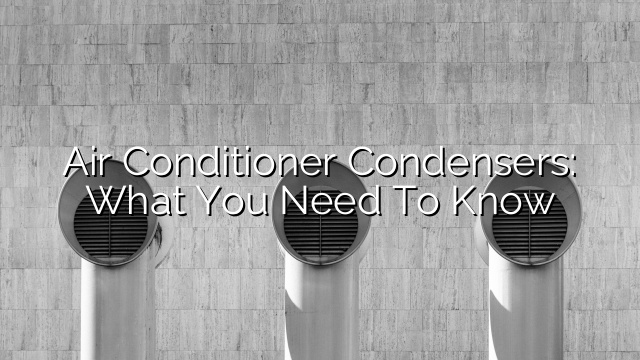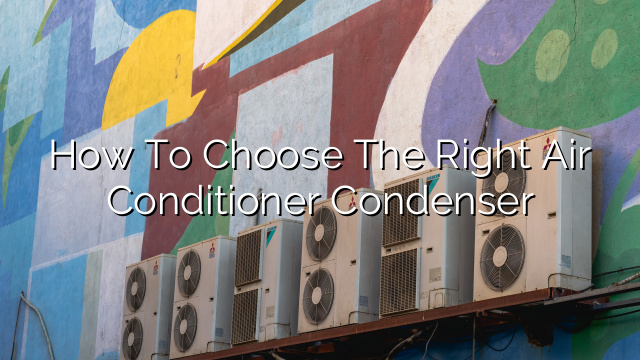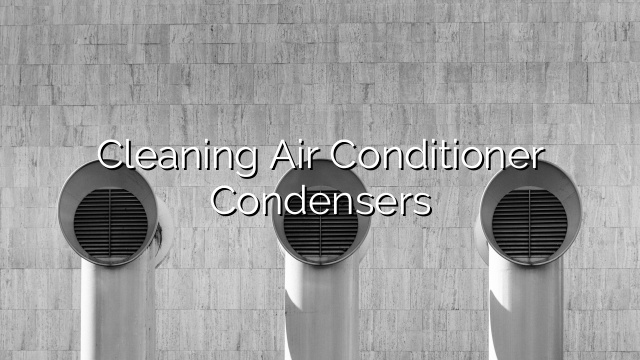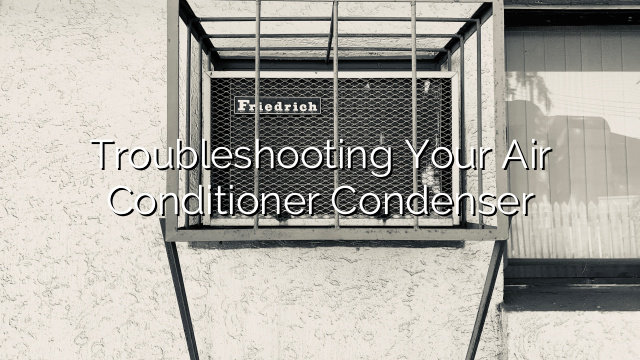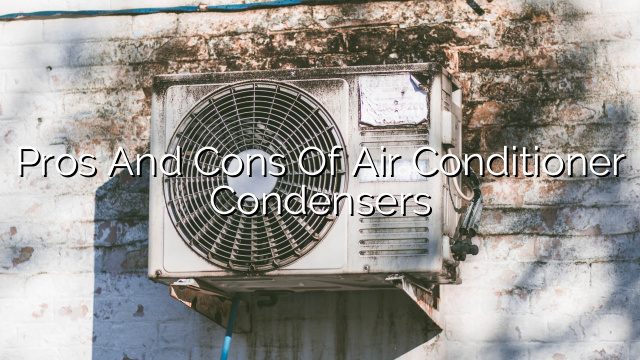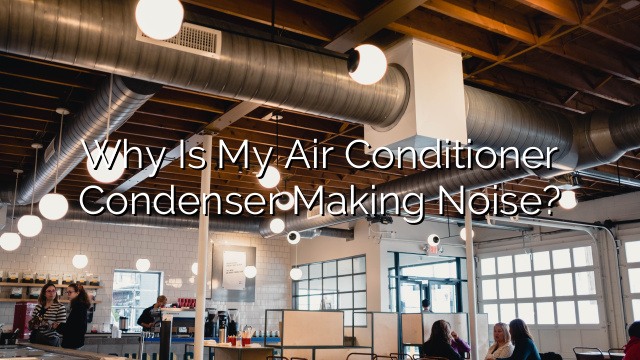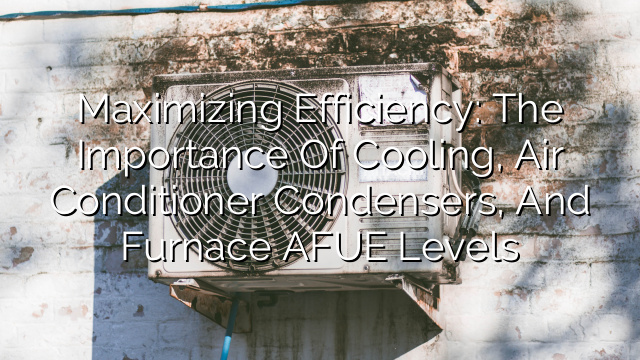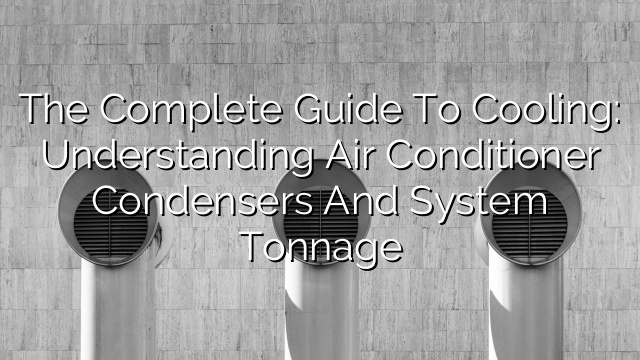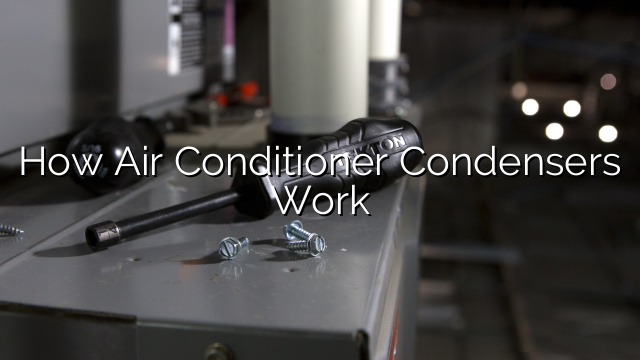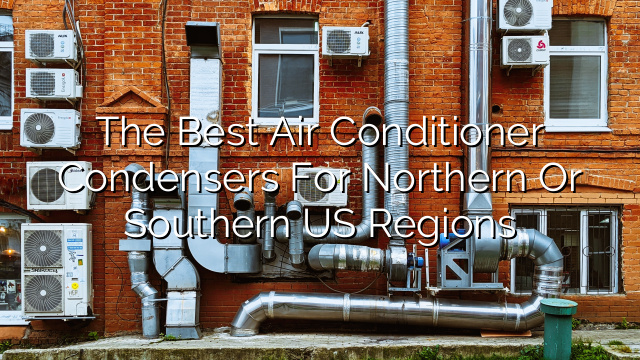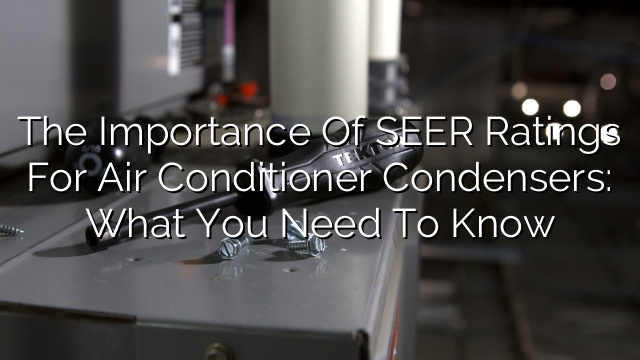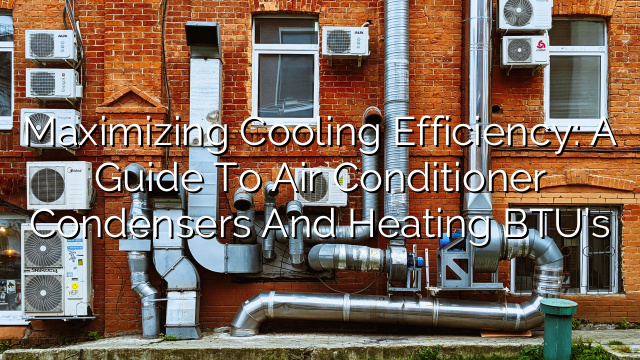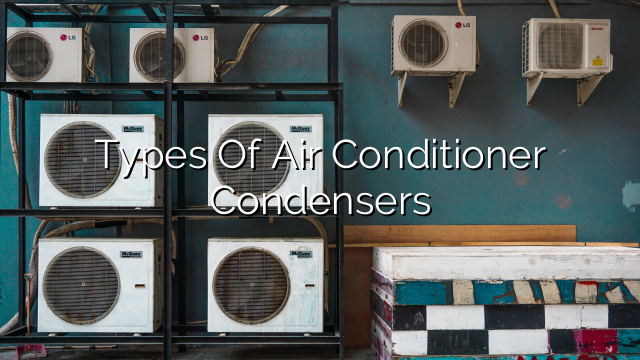Air Conditioner Condensers: What You Need to Know
If you own an air conditioner, you may have heard the term “condenser” being mentioned. But what exactly is a condenser and why is it so important for your AC system?
In this article, we will give you a comprehensive overview of air conditioner condensers, their function, how they work, and what you need to know to keep them in good working condition.
Table of Contents
What is an Air Conditioner Condenser?
An air conditioner condenser is a key component of your AC system. It is usually located outside of your house and is responsible for releasing heat from the refrigerant that flows through your air conditioning system. The condenser plays a crucial role in cooling down the refrigerant and preparing it for the next cooling cycle.
How Does an AC Condenser Work?
The condenser works by transferring heat from the inside of your home to the outside. It does this by cycling the refrigerant between high- and low-pressure states. When the refrigerant enters the condenser, it is in a high-pressure, high-temperature gas form. As it flows through the condenser coil, the heat from the refrigerant is transferred to the surrounding air, causing the refrigerant to condense back into a high-pressure liquid.
Once the refrigerant is in a liquid state, it flows to the evaporator coil inside your home, where it evaporates, absorbing heat from the indoor air and cooling it down. The process repeats itself as the refrigerant returns to the condenser, and the cycle continues as long as your AC is running.
Why Is the Condenser Important?
The condenser is important for several reasons:
- Heat Dissipation: The condenser allows the heat collected from the indoor air to be released to the outside, helping to cool down your home.
- Cycling Refrigerant: The condenser allows the refrigerant to cycle between high- and low-pressure states, facilitating the cooling process.
- Energy Efficiency: A well-maintained condenser ensures that your AC system operates at peak efficiency, reducing energy consumption and lowering your utility bills.
- Durability: Regular maintenance and proper care of the condenser can extend the lifespan of your air conditioner, saving you money on expensive repairs or replacement.
How to Take Care of Your Condenser
To ensure that your condenser stays in good working condition and continues to cool your home effectively, there are several steps you can take:
- Clean the Surrounding Area: Keep the area around your condenser free from debris, such as leaves, grass, and branches. This allows for proper airflow and prevents the condenser from overheating.
- Change the Air Filters: Regularly replace the air filters in your AC system. Clean filters help prevent dirt and dust from clogging the condenser coil, improving its efficiency and extending its lifespan.
- Schedule Regular Maintenance: Hire a professional HVAC technician to inspect and maintain your air conditioner annually. They will clean the condenser coil, check for refrigerant leaks, and ensure that all components are in good working order.
- Protect from Physical Damage: Place a protective cover or fence around the condenser to prevent accidental damage from animals or lawn equipment. Avoid placing any objects on or near the unit that could obstruct airflow.
Common Condenser Problems
While regular maintenance can prevent many common condenser problems, there are still a few issues that may arise over time:
- Refrigerant Leaks: Leaks in the refrigerant lines can cause your AC system to lose cooling capacity. If you suspect a refrigerant leak, contact a professional HVAC technician to locate and fix the problem.
- Dirty Condenser Coil: A dirty condenser coil can reduce the efficiency of your AC system. Regular cleaning is recommended to remove dirt and debris that can accumulate on the coil and hinder heat transfer.
- Fan Motor Failure: The fan motor in the condenser can fail over time, leading to poor airflow and reduced cooling capacity. A faulty fan motor should be replaced by a qualified technician.
- Electrical Issues: Faulty wiring, blown fuses, or tripped breakers can prevent your condenser from functioning properly. It is important to have any electrical issues addressed by a professional electrician.
FAQs
1. How often should I clean my condenser coil?
We recommend cleaning your condenser coil at least once a year as part of your annual AC maintenance. However, if you live in a particularly dusty or polluted area, more frequent cleaning may be necessary.
2. Can I clean the condenser coil myself?
While it is possible to clean the condenser coil yourself, we recommend hiring a professional HVAC technician. They have the proper tools and knowledge to safely and effectively clean the coil without causing any damage to your AC system.
3. What should I do if my condenser is making strange noises?
If your condenser is making unusual noises, such as grinding or squealing, it is best to turn off your AC system and contact a professional technician. Strange noises can indicate a mechanical issue that needs to be addressed to prevent further damage.
4. How long does a condenser typically last?
A well-maintained condenser can last anywhere from 10 to 15 years. However, if the unit is not properly cared for or experiences frequent breakdowns, its lifespan may be significantly shorter.
5. Can I move my condenser to a different location?
It is possible to move a condenser to a different location, but it is not a simple DIY task. You will need to hire a professional HVAC technician to assess the new location, install new refrigerant lines if necessary, and ensure that the unit is properly secured and functioning correctly.
6. Should I cover my condenser during the winter months?
Generally, it is not necessary to cover your condenser during the winter months. Modern condensers are designed to withstand the elements and can safely be left uncovered. However, if you live in an area with extremely harsh winter conditions, you may choose to cover the condenser for added protection.
7. Is it normal for the condenser fan to run continuously?
No, it is not normal for the condenser fan to run continuously. The fan should only run when the AC system is in operation. If the fan is running constantly, it could indicate a problem with the fan motor or control board, and you should contact a professional for assistance.
8. Does the condenser need to be level?
Yes, the condenser should be level for optimal performance. If the unit is not level, it can place unnecessary strain on the compressor and affect the overall efficiency of your AC system. If you notice that your condenser is not level, contact a professional to have it adjusted.
9. Can I install a new condenser myself?
While it is possible to install a new condenser yourself, it is not recommended unless you have the necessary expertise and knowledge. Improper installation can lead to serious damage to your AC system and may void any warranties or guarantees.
10. How much does a new condenser cost?
The cost of a new condenser can vary depending on the brand, size, and features. On average, you can expect to pay anywhere from $1,500 to $5,000 for a new condenser unit, including installation.
Conclusion
By understanding the importance of your air conditioner condenser and taking proper care of it, you can ensure that your AC system works efficiently and effectively, keeping your home cool and comfortable all summer long.

